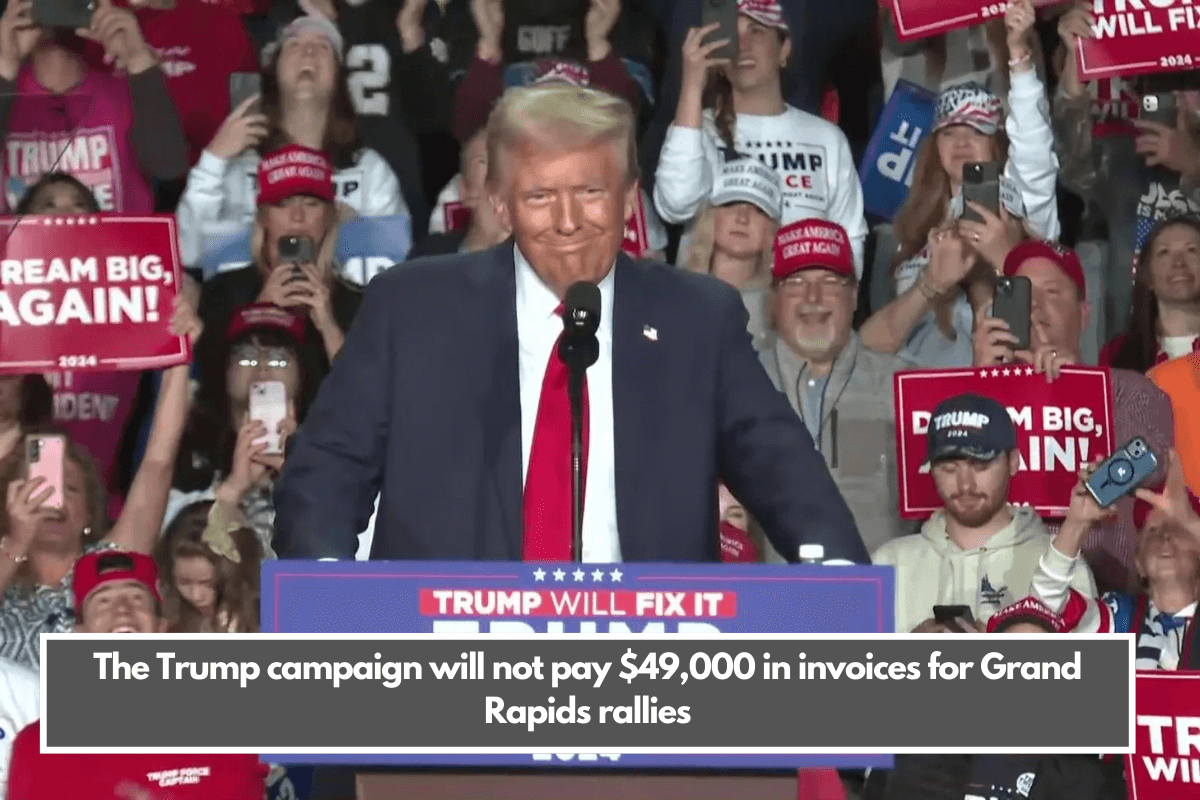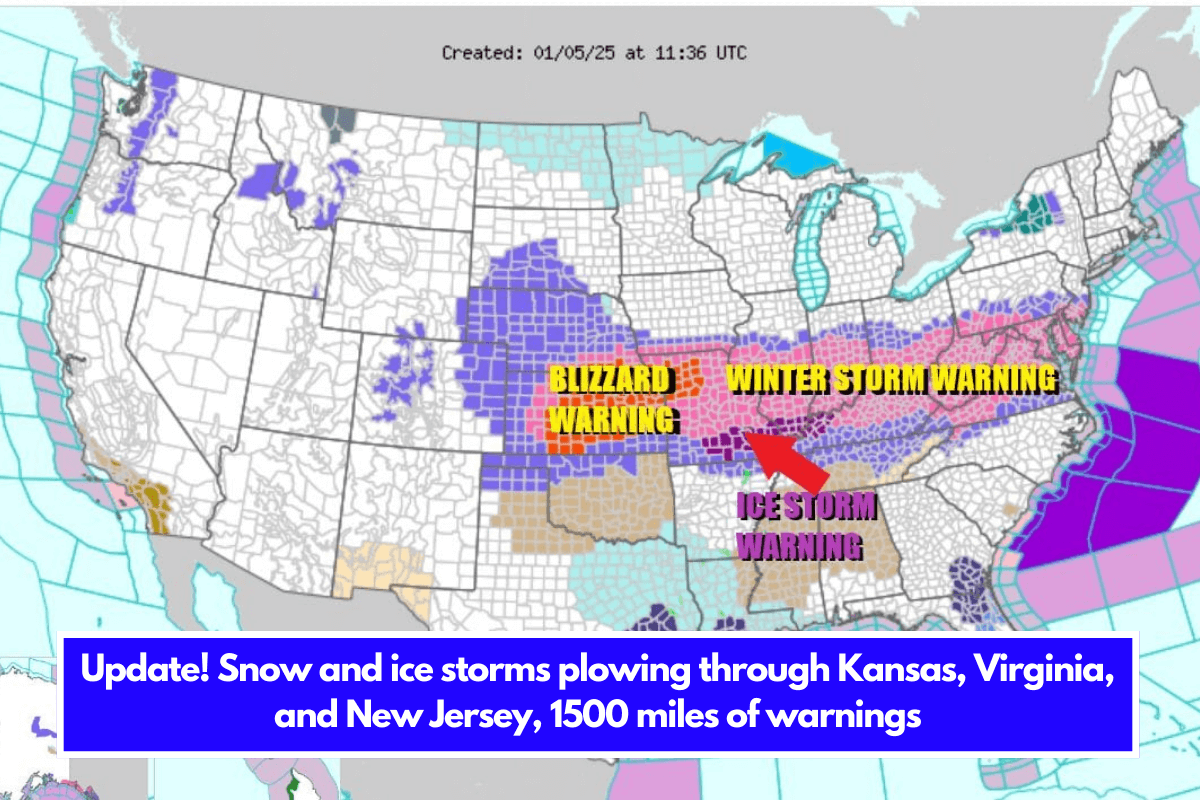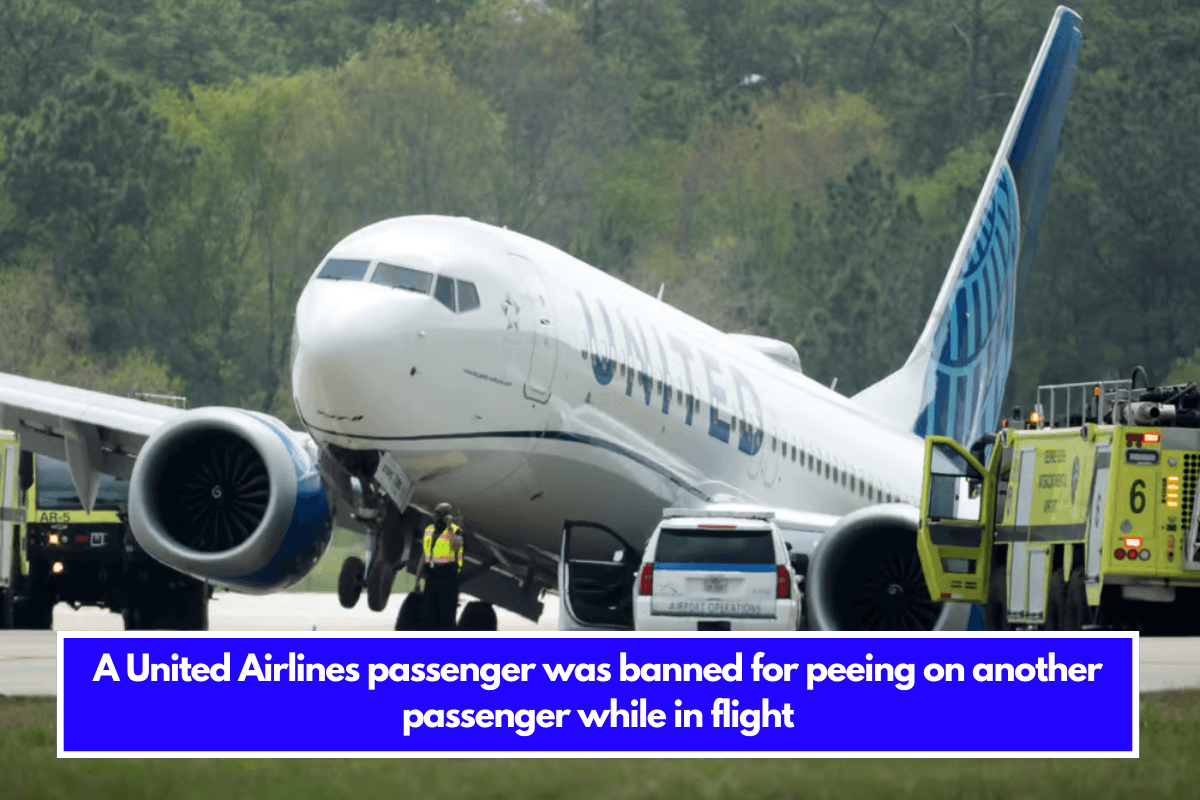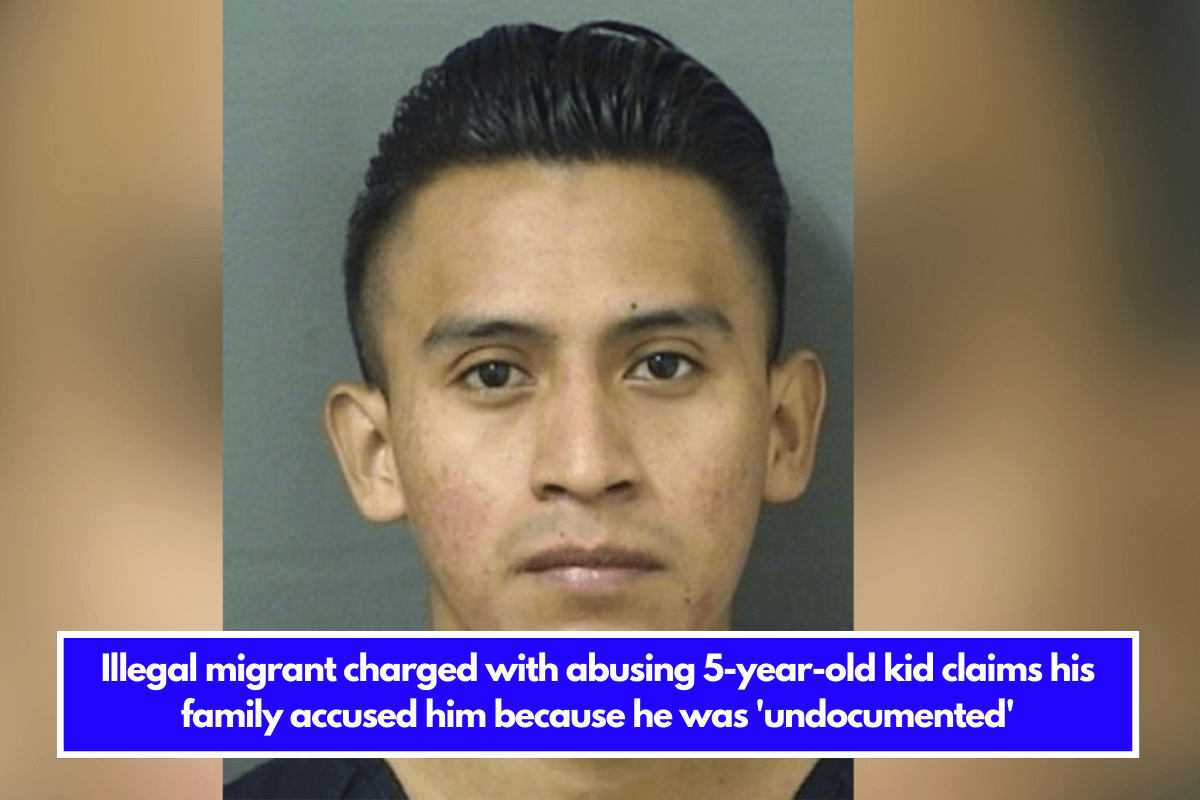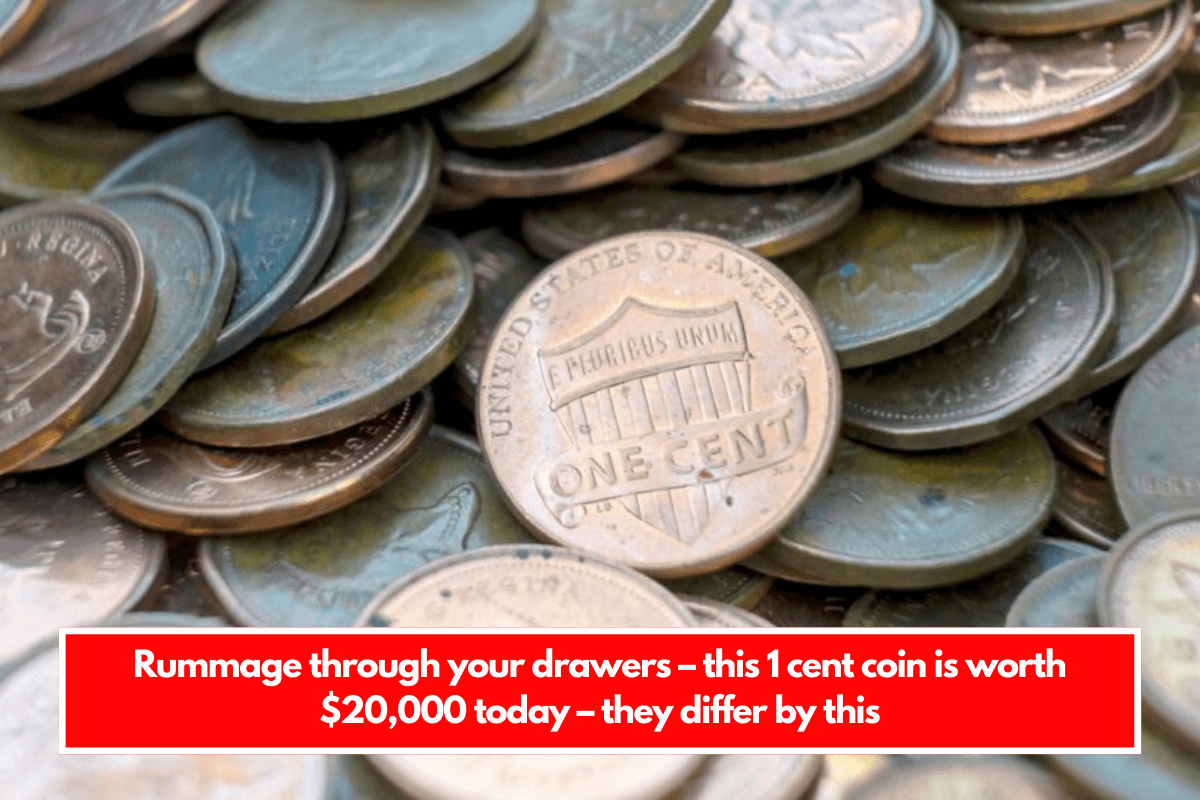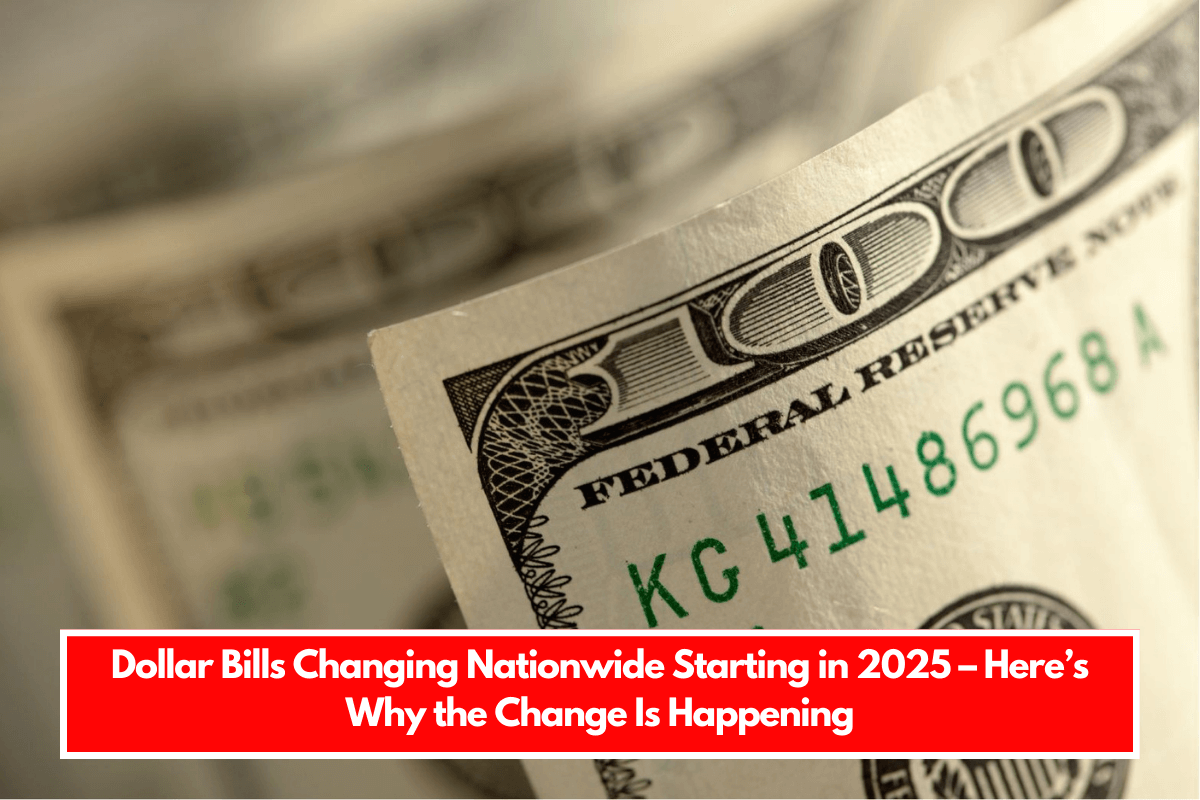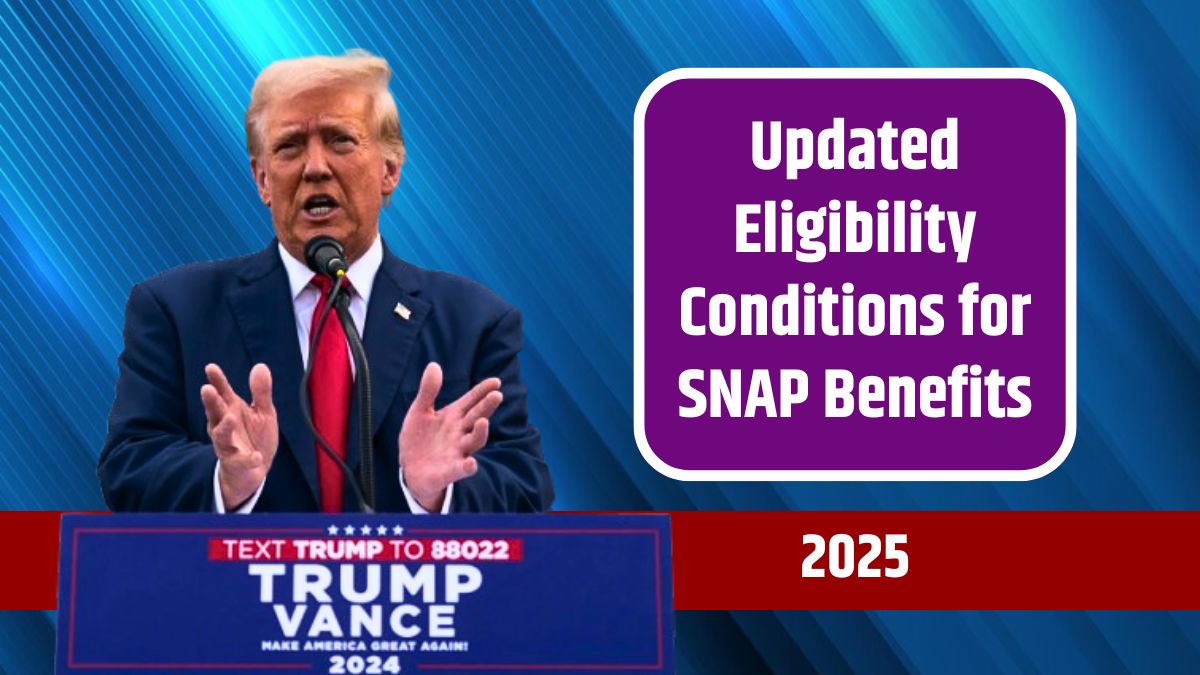According to the city of Grand Rapids, the Donald J. Trump for President 2024 campaign has refused to pay more than $49,000 in bills for two rallies held there this year.
This forces the city to write off the expenses as uncollectable and reconsider policies for future campaign visits.
The unpaid invoices are for two rallies that drew thousands to the city, both held at the Van Andel Arena.
Grand Rapids billed Trump’s campaign nearly $33,000 for his July rally, which included the largest amounts of overtime for police and the city’s public works department.
The bill was due in October but went unpaid.
“It’s extremely unusual to have outstanding bills, especially for someone who clearly raised enough money from their campaign to cover their expenses,” said outgoing Grand Rapids Mayor Rosalynn Bliss.
According to federal records, as of late November, Trump’s campaign had nearly $10 million in cash on hand out of $464 million raised.
The city of Grand Rapids charged the Trump campaign more than $16,000 for his visit on November 4, his final rally of the campaign. The majority was for overtime for public works.
This also went unpaid.
In October, Vice President Kamala Harris held a rally at Grand Rapids’ Riverside Park.
According to city officials, her campaign paid for the $2,800 bill upfront.
When asked why Harris’ bill was so much lower than Trump’s, a city spokesman explained that Trump’s rallies required far more protection, in part due to their location.
“The Trump campaign used a venue in a downtown district, which necessitated more road closures and associated safety measures, increasing costs,” the city spokesman said in an email to Target 8. “It was also the first event the President-Elect held after the assassination attempt, necessitating increased security.
“The Harris campaign event required the same level of security, but utilized a city park with ample green space, requiring a limited number of road closures and associated safety measures,” according to him.
According to Bliss, the unpaid bills are costing taxpayers.
“If the campaign doesn’t pay, ultimately we still have bills to pay and overtime and staffing costs and fencing costs and all the things that go with having a presidential candidate come, especially with the level of security that was required,” says Bliss.
“It’s a big ask for a city to host a presidential candidate. It requires a lot of work in a short period of time, and people work overtime. They work extremely hard to ensure everyone’s safety, and we deserve to be compensated for their efforts.
Target 8 attempted to contact the phone number listed on city invoices for the Trump campaign, but the voicemail was full. An email sent to the Trump campaign representative listed on the invoices went unanswered.
Grand Rapids isn’t alone. In October, NBC News reported that the Trump campaign owed more than $750,000 to four cities and a county across the country, some of which went back eight years.
That excludes the $93,000 bill left unpaid by the city of Battle Creek for a rally in December 2019, according to city officials.
In an email to Target 8, a Battle Creek city spokeswoman stated: “Despite multiple attempts to collect payment, the city was unable to do so and subsequently wrote off the invoice in June 2020.”
She stated that she was unaware of any other political campaigns with unpaid bills from the city.
“It’s important to note that the city does not automatically invoice political campaigns that visit Battle Creek,” according to the spokeswoman. “However, the Trump campaign’s December 2019 visit resulted in significant overtime costs.”
The Trump campaign still owes $40,000 in Erie, Pennsylvania, for stops made in 2018 and 2023, according to city spokesman Rob Lee. Lee also stated that he has yet to pay the $63,000 bill for a rally held in September.
The city of Erie said it is also awaiting a $70,000 payment from the Harris campaign for an October rally.
Back in Grand Rapids, a city spokesman told Target 8 via email that the Trump campaign has referred all payment requests to the US Secret Service.
But the Secret Service will not pay.
“The US Secret Service has indicated that such costs are not budgeted for,” a Grand Rapids spokesman wrote.
He stated that the city is developing policies and processes for future campaign visits “based on what it’s learned.”
“I hope we can learn from this,” Bliss said. “But the reality is, I believe the city should continue to pursue reimbursement. We do that; we have compliance efforts all over the city, and if we’re doing compliance to ensure a taxpayer pays their bills, we should do the same for this.”
She suggested that the city consider receiving funds in advance from now on.
“Maybe on the front end, we ask for a deposit or a commitment to pay the full amount. But I believe we need to look at our current process and what isn’t working,” she said. “How did this occur? Then we’ll see what we can do to prevent it in the future.”
Incoming Grand Rapids Mayor David LaGrand also stated that unpaid bills should result in a change in protocol.
“If we have a history of somebody not paying, we definitely want to get money up front,” LaGrand informed me.

